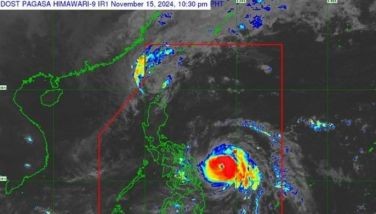Halloween highlights Asia’s supernatural links
From traditional markets to modern entertainment districts, major cities across
In
Children in the Philippines trick-or-treated at the Manila home of former President Joseph Estrada, while in Beijing, Bangkok and Hanoi, the night of dressing up in disguise is simply seen as an expatriate party.
Apart from the money to be made and the fun to be had, Halloween’s celebration of the afterlife appeals to Asians’ deeper relationship with the supernatural, said Hong Kong-based cultural commentator Nury Vittachi.
“Ghosts are very big in Asian culture and there is a deeper understanding and interest in their place in society,” Vittachi said.
“You can have a relationship with them, you can make friends with them. In the West, ghosts are nearly always bad things, but here they are on your side.”
The Chinese Yue Lan, or Hungry Ghosts, festival falls just a few weeks before Halloween. Families mark the day with picnics at the graves of loved-ones, even setting them a place at the meal to ensure their happiness.
Other rituals include burning gifts the ghosts may want. Modern offerings range from paper versions of iPods, designer suits and airline tickets to a representation of a domestic servant.
Graves are swept and presents are even burned for ghosts who do not have relatives to look after them, for fear they may become angry.
This trepidation about an avenging afterlife was perhaps most acutely seen in
However, this strong link to the afterlife can also cause tensions between traditional values and the growing popularity of Halloween.
Despite the rare cultural clashes, many cities will prepare for the celebration with good humor.
“It is a good excuse for a party, and who doesn’t like a party?” Vittachi said.
- Latest
- Trending






























